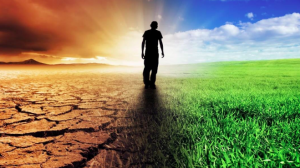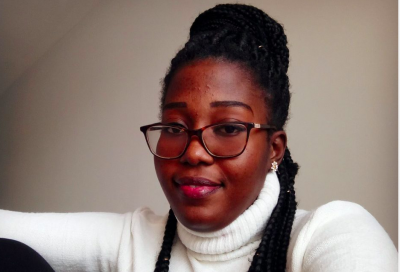Become an agent of change for living more sustainably. That’s the message from Beatrice Quarm from Ghana, who is studying for an MSc in Entrepreneurship in the National College of Ireland in Dublin, and who finds herself adopting a more eco-friendly lifestyle since moving to study in Ireland.
What is sustainability?
The world is currently facing a global threat that will only get worse if we refuse to acknowledge the truth, even though we are constantly surrounded by and experience it. Just as Newton’s third law of motion states, to every action there is an equal and opposite reaction, so it’s certain that our collective and repetitive negative actions will have consequences for the planet that are sure to be uncomfortable.

Source: Pinterest
The call for greater sustainability, I believe, is long overdue. Even though it has become a global issue being advocated for by various governmental institutions and organisations, there is no doubt that often it is also highly neglected and overlooked, especially among people located in different regions of the world. In essence, sustainability means ensuring that our lifestyle does not affect another in a negative way, and we do this by reducing the demand for natural resources, reducing waste and maintaining the quality of the natural environment.
The need for sustainability
The constant depletion of the world’s natural resources has already brought negative impacts that can be quite devastating; just look at climate change, global warming and the depletion of the ozone layer. Although most people might have heard of or are already engaged in sustainable practices, others refuse to accept the negative impact of waste and therefore deliberately waste resources. Pathetic, isn’t it?
Most people come up with excuses to waste natural resources such as food and water, and I have found this attitude is prevalent mostly amongst students. I have had personal experience with other students from different countries who deliberately waste food, water and energy, and they use similar excuses for their actions.
However, my perception of sustainability and how to become eco-friendly improved after moving to Ireland. I was less interested in sustainable practices back in my home country, and I believe this is somehow the case for most international students studying in Ireland. Most are from developing countries where there is little advocacy or education on sustainable practices, so the terms recycle, reduce and reuse, or zero waste are mostly overlooked.

We need to take care of our planet (source: Pinterest)
Be an agent of change
The fight against waste has yet to peak as most individuals, from whatever country, have neither heard of nor understood the full importance of sustainable practices. In the fight against waste and global climate change, it is possible, however, to educate and impact knowledge about practicing sustainable activities. Education on sustainable living can be promoted through sustainability summits and recreational activities in various institutions, and also by creating long-term personal sustainability goals.
International students in Ireland can become agents of change in their respective countries and localities by advocating for and sharing knowledge about the need and importance for sustainable living. And they can do this through their social media platforms or by organising educational sessions in schools on the importance and positive impact of sustainable living. To become an agent of change in our home countries, however, first we must decide and continue to engage in sustainable practices ourselves, creating innovative ideas for sustainability and understanding and taking on the responsibility to make the world a better place.
Facebook: https://www.facebook.com/beatrice.quarm9
Twitter: https://twitter.com/quarm_esi

